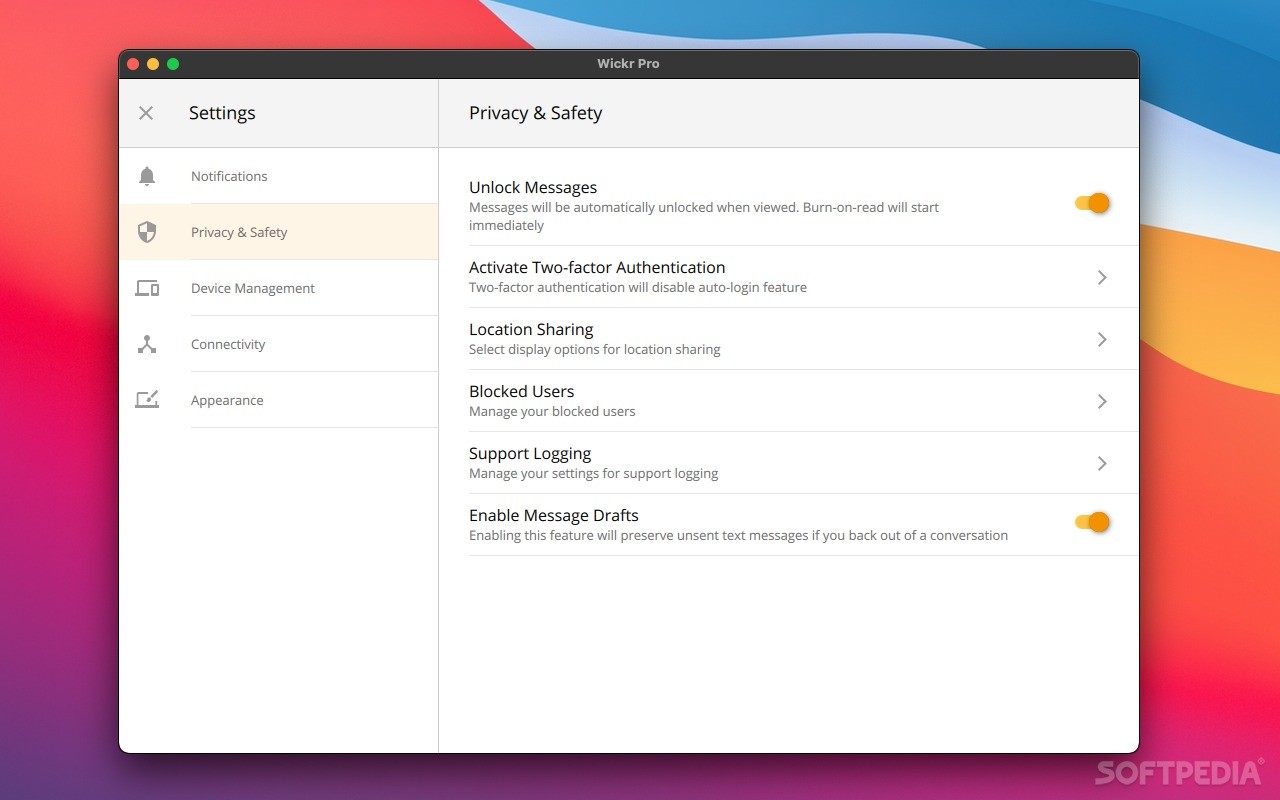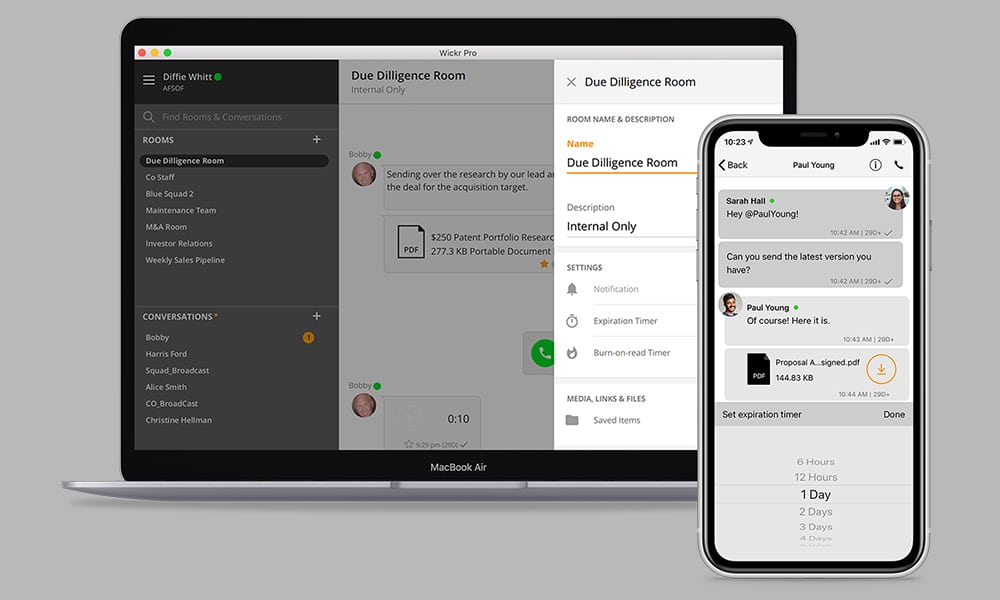

Being able to see how it handles your data (and that it handles it correctly) makes a user trust it more than a closed system where the user is not sure if a backdoor, spying mechanism, or other fault exists.Ĭlosed source proponents will argue that closed source makes it harder to break into because the code is harder to obtain (reverse engineering). Open source also makes people feel like they can trust the application. The theory is that because anyone can go through the source code there are more people who would spot issues and report them. Open source relies on the "many eyes" to guard against failure or bugs. In response to the open source vs closed source debate here are some aspects I would consider:
#DIFFERENCE BETWEEN WICKR AND WICKR PRO HOW TO#
"I want to buy drugs on the internet").ĭon't post without mentioning your threat model, unless it's a post about how to threat model. "you can't get arrested if you use Tor")ĭon't ask for help or help others in illicit and unlawful activities (e.g. VPN, bitcoin, Signal) when the threat model isn't clearĭon't give bad, ridiculous, or misleading advice (e.g. If you proceed to give advice when the OP has not explained their threat model, you will be banned.ĭon't offer single tool solutions (e.g. /r/privacy - Dedicated to the intersection of technology, privacy, and freedom in the digital world.ĭon't post without reading the rules thread or your post will be removed, and you may be banned.ĭon't give advice without knowing the user's threat model first./r/netsec - A community for technical news and discussion of information security and closely related topics.The Operations Security Professional's Association (OSPA)ĭefense Security Service OPSEC Awareness Course

The OPSEC Two-Step: Know what to protect and know how to protect it. Understand your own risk/threat model: Who is your adversary? What needs protecting? Identify the information you need to protect It includes elements of INFOSEC, APPSEC, NETSEC, COMSEC, PHYSEC, and (CO)INTEL. OPSEC isn't a list of rules, and it's not as simple as using a VPN and keeping your mouth shut. This includes law enforcement, computer and network security, home safety, travel, and so much more. It's also a mindset that can be applied to any mission or plan.Īlthough the term originated in the military, OPSEC is now used for so much more. It's a systematic and proven process that we can use to deny adversaries information they need to do us harm or interrupt our plans. Operations Security, or OPSEC, OPSEC is about minimizing attack surfaces and single points of failure through proper habits and policies.


 0 kommentar(er)
0 kommentar(er)
